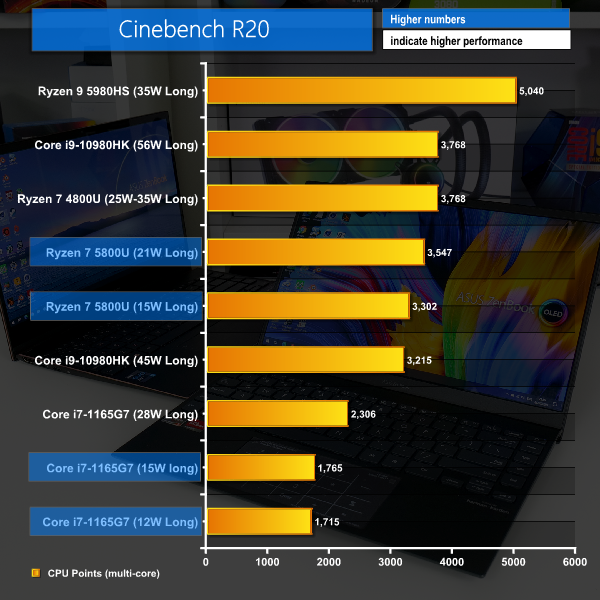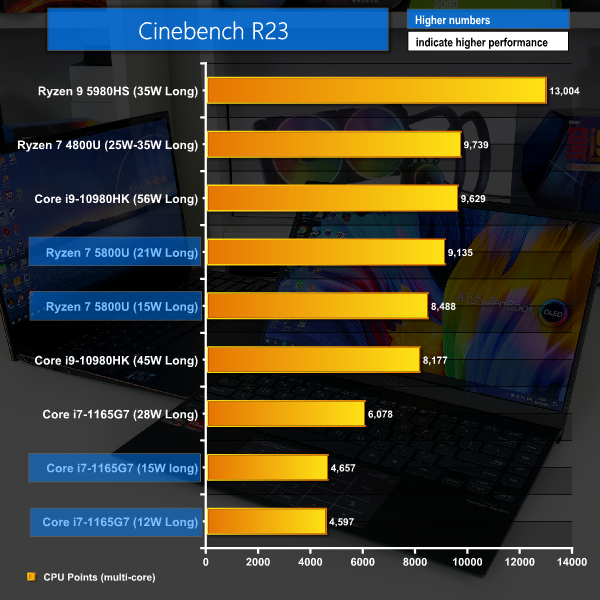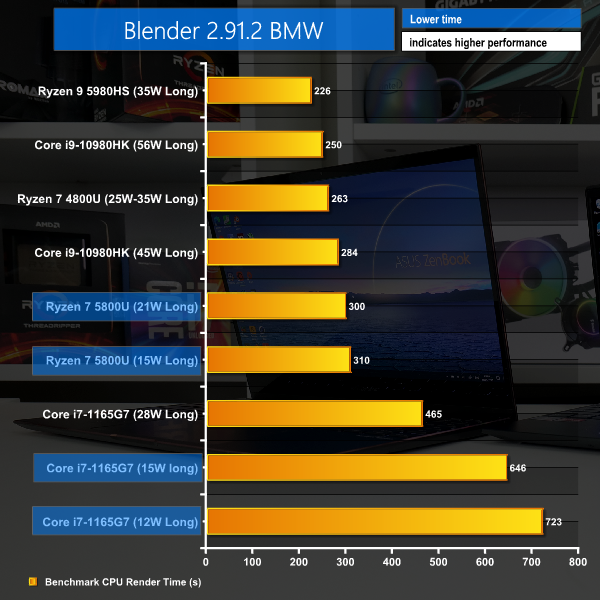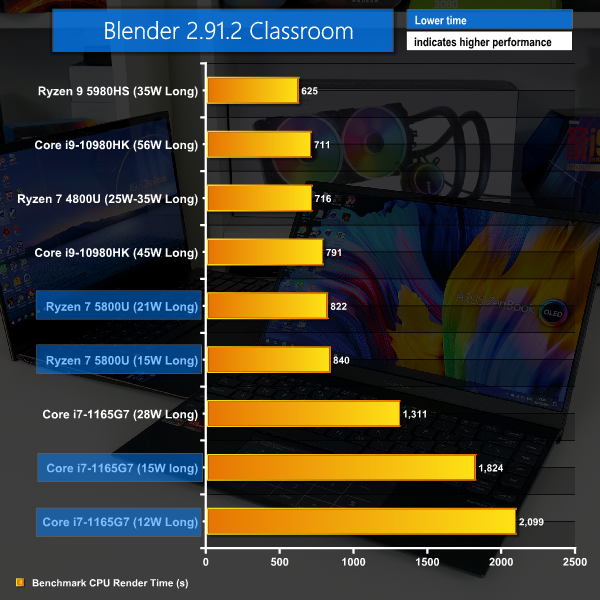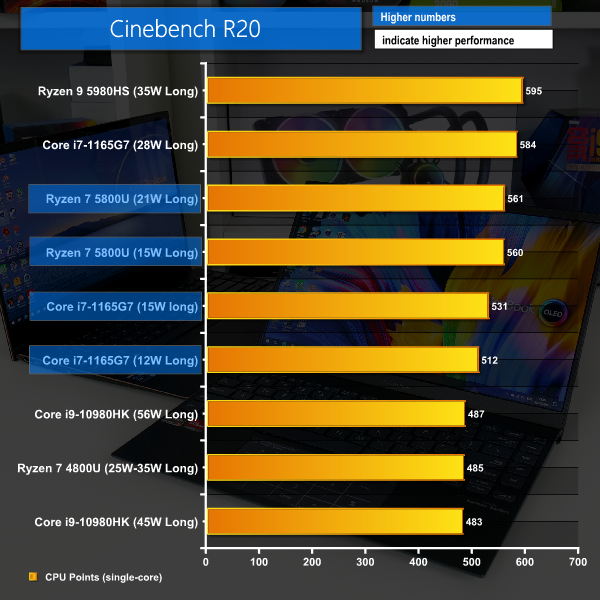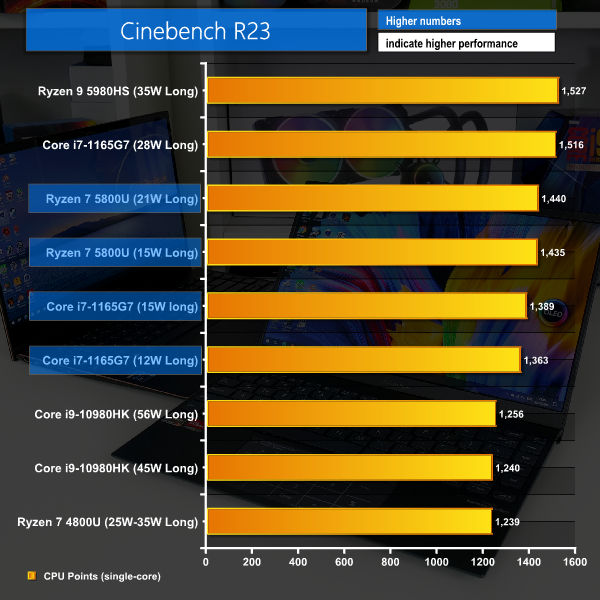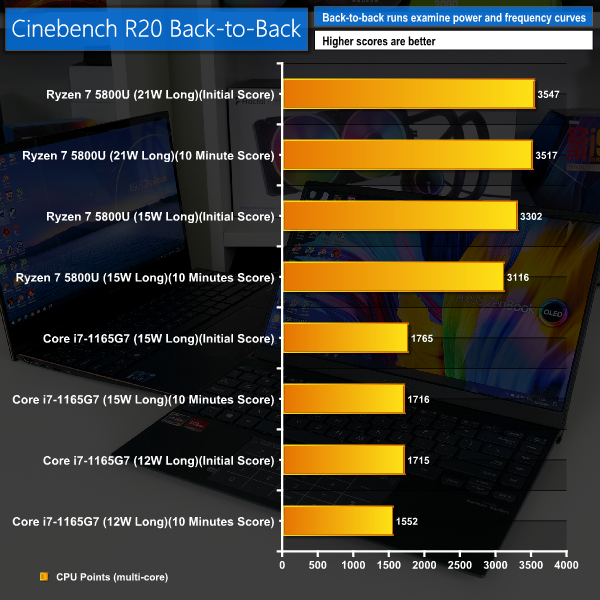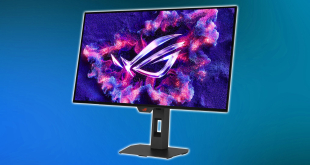Heavy multi-threaded CPU performance from the Ryzen 7 5800U is impressive and that is particularly true for the longer Cinebench R23 and Blender runs whereby Intel’s lofty short-duration power states hold less influence. Seeing AMD’s 8-core 15W chip batting against a 45W gaming-calibre option from Intel is eye-opening, quite frankly. The i7-1165G7 is comprehensively beaten by the AMD low power silicon.
Focussing now on 1T performance in Cinebench, AMD has closed the gap to Intel Tiger Lake here. In fact, the reduced power states allow the Ryzen 7 5800U to actually outperform the Core i7-1165G7. And the 5800U’s improvement over the Zen 2 4800U with a higher power budget is significant.
In terms of CPU-based clock speed consistency, we see the expected boost behaviour from Ryzen 7 5800U and Core i7-1165G7. In other words, not even 10-minutes of heavy load and heat soak can reduce the AMD chip’s clock speed and corresponding performance to anywhere as low as Intel levels.
As a side note, we also saw the Ryzen 7 5800U outperforming the Core i7-1165G7 by a little over 50% in Cinebench R20 nT for an on-battery test run. We know that is an area that Intel highlighted previously, but it doesn’t seem to be a concern for AMD with Zen 3 Ryzen 5000U.
 KitGuru KitGuru.net – Tech News | Hardware News | Hardware Reviews | IOS | Mobile | Gaming | Graphics Cards
KitGuru KitGuru.net – Tech News | Hardware News | Hardware Reviews | IOS | Mobile | Gaming | Graphics Cards


